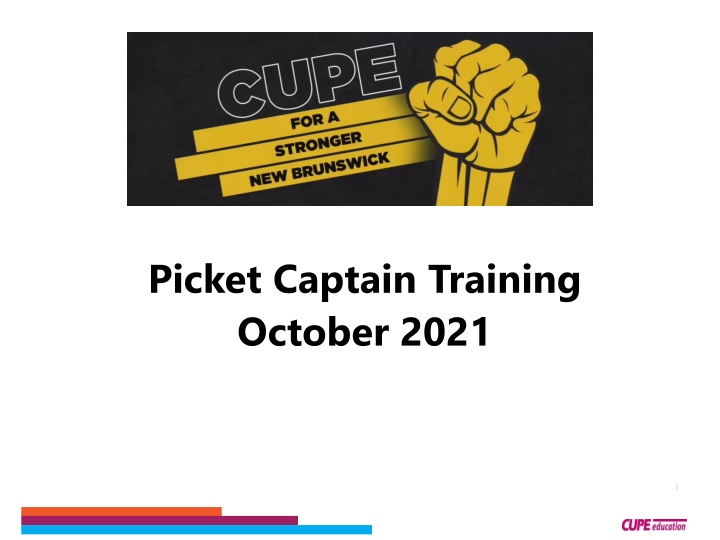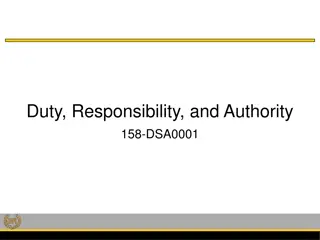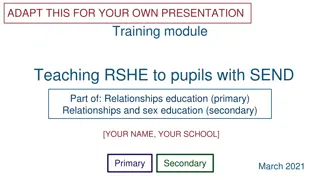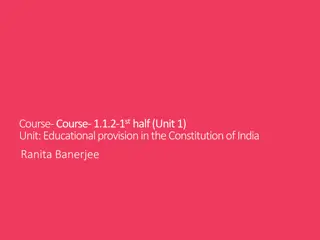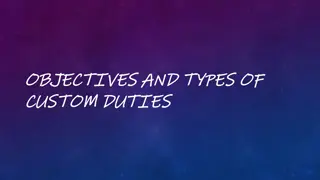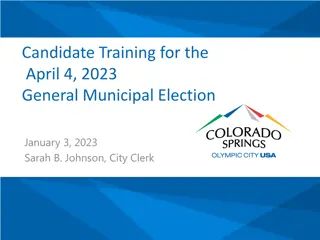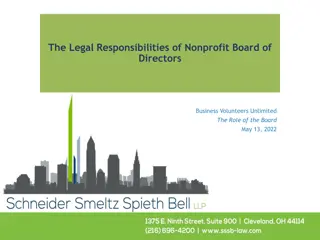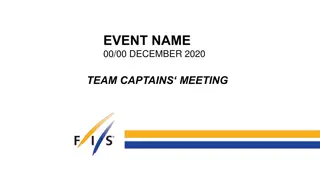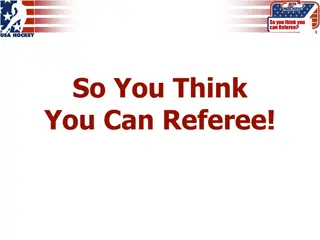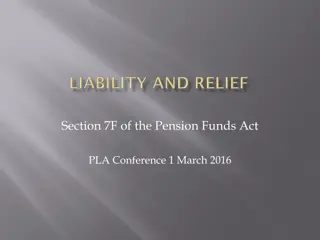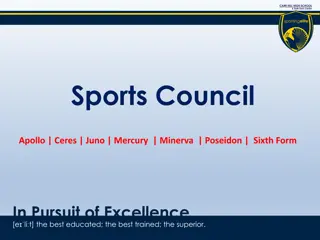Essential Guide for Picket Captains: Training, Duties, and Tips
Picket captains play a crucial role in strike actions, managing picket lines effectively, and supporting union members. Their responsibilities include organizing picket lines, communicating with strike committees, liaising with authorities and media, and fostering solidarity. This guide outlines training, duties during a strike, general tips, handling and reporting incidents, and dealing with the media.
Download Presentation

Please find below an Image/Link to download the presentation.
The content on the website is provided AS IS for your information and personal use only. It may not be sold, licensed, or shared on other websites without obtaining consent from the author.If you encounter any issues during the download, it is possible that the publisher has removed the file from their server.
You are allowed to download the files provided on this website for personal or commercial use, subject to the condition that they are used lawfully. All files are the property of their respective owners.
The content on the website is provided AS IS for your information and personal use only. It may not be sold, licensed, or shared on other websites without obtaining consent from the author.
E N D
Presentation Transcript
Picket Captain Training October 2021 1
Your role. Thank you! Picket Captains play such an important role in running effective picket lines and making gains for our members. The union will depend on you to: Run a well-organized picket line. Be the link between the Strike Committee and Picketers. Liaise with police or security. Liaise with the media. Present a positive face to the public. In the event of a strike, you will be expected to share information, boost morale, solve problems, support picketers in the tough moments, navigate problems and celebrate solidarity. 2
Picket Line Duties: During a strike Arrive early. Wear your picket captain vest or button. Greet picketers and ensure all members sign in and out. Pass on new information to picketers. Problem solve and ensure safety. Identify natural leaders, assign roles. Confirm identity of scabs, take photos and share info with Picket coordinator/ Strike Committee. Welcome solidarity picketers and let others know they came! Stay put until the next picket captain arrives. Make sure all forms are properly completed and submitted, including Form F "Picket Captain's Daily Report." 3
General tips for Picket Captains Stay positive. Build your kit! See "Picket captain kit" list in Picket Captain manual. Use common sense to solve problems. Dress for the weather. Talk with the members, keep them informed and involved. Be empathetic Different members have different challenges and will be stressed by different things. Encourage trust and solidarity with the bargaining committee. Find creative ways to make the picket line fun! 4
Handling and reporting incidents Document what happens. Complete an Incident Report Form and pass it on to the Picketing Coordinator whenever the following happens: An incident with the police, security guards or picket line monitors. Medical emergencies. Encounters with hostile members of the public or vehicles. Any other incidents you think the strike committee will want to know about. 5
Dealing with Media Only official spokespeople give statements to the media. Make sure all picketers know who the media spokespeople are. The committee will ensure that they are up to date on information and key messages. Get to know your picketers. Listen to their stories. Share positive stories from the picket line with strike headquarters. When you are approached by the media: Introduce yourself as picket captain. Refer requests for interviews or statements to strike headquarters. Encourage chants and singing. This is how you get the message out. Show that your picket line is well-organized, clean and safe. 6
Dealing with Police or Security We have a legal right as union members to strike and to picket. Some provinces have laws that restrict picketing, and some workers cannot go on strike. Police have no authority in a labour dispute, unless someone breaks the law. They will want to minimize traffic disruption and violence. Police should be there to protect everyone including picketers. Usually, the strike committee develops a picketing plan with input from the police. This makes them more likely to mediate in a neutral way if there is a dispute. 7
Dealing with Police or Security Introduce yourself as the picket captain. Ask them to speak directly to you if they have concerns. Have a witness when you speak with the officer. Be polite and answer questions. Always have any rules or agreements on hand. Ensure picketers refrain from antagonizing police (verbal or body language). Record all police activity. Report concerns to the picketing coordinator or strike committee (Use incident report form). Problems on the picket line: In the case of a medical emergency, call 9-1-1. If a member is assaulted, call the police. For all other problems, talk to the Picketing Coordinator on the Strike Committee. 8
Picket line site Where will the picket line be, where will it move from and to? Where would you put a fire barrel or shelter? Where will you keep your supplies? Are there potential hazards? How can you keep the site safe and clean? Traffic flow How could you delay traffic? Where would vehicles line up? Where would you hold the vehicles? How could you group vehicles? (For example, hold 3 at a time) How would delaying traffic affect the area? Would it interfere with traffic lights? How could you deal with these issues? Sight lines Are there blind spots? Would delaying traffic create blind spots? 9
Hazards Would delaying traffic create a hazard for drivers, picketers or passersby? Would delaying traffic block any crosswalks? How could you deal with these issues? Picketers Where will they park? Where is the closest washroom? Where can they get coffee, water, food? How many picketers will you need to safely and effectively picket at this site? (assuming they will keep moving.) 10
A notebook and pens, clipboard and paper, etc. Extra copies of Form F Picket Captain s Daily Report Extra copies of leaflets to be given to people crossing the picket line Extra copies of Information Sheets for members Extra copies of Incident Report Forms Picket signs (that reflect the union s key messages) Buttons, etc. Traffic cones (to slow traffic crossing the picket line and limit the chances of picketers being hit by a car) Contact list/phone tree for members on your line Cell phone with numbers for everyone on your picket line/shift, Picket Line Coordinator, Strike Committee members, the union media spokesperson, strike headquarters, police, etc. A camera/video camera/phone to record problems as well as positive moments Map of the area Receipt books First Aid Kit Flashlight with fresh batteries Matches Toilet paper Garbage can and garbage bags Duct tape Picket Captain Kit 11 11
creating and leading chants (that are consistent with the union s key messages); writing and singing songs (that are consistent with the union s key messages); distributing union materials; talking to people in cars; talking to people passing by; tending the fire; taking pictures (of problems as well as positive scenes from the picket line); videotaping (of problems as well as positive scenes from the picket line); counting the number of vehicles crossing the line; keeping the area safe and clean; organizing social events. How to keep picketers engaged 12 12
Our goal is to gain public support and have the public join us in putting pressure on the employer. It s easier to win public support if we have positive messages on the picket line and on our picket signs. How do we handle talking to the public? For example: we want to work for you; we want a fair, negotiated agreement; we re your neighbours; we re part of the community; we respect and support the citizens of our community; we believe in We want to show the public that we want to be part of the solution. 13 13
How long can we hold up traffic? Ideally, vehicles won t cross the picket line. Find out if provincial law allows you to slow or stop traffic. If it does and vehicles want to cross your line, it s good to get them to stop long enough for a conversation about why workers are taking job action. Sometimes the local and the employer negotiate a length of time. Sometimes the police are involved in the negotiations. Make sure everyone on the picket line knows what the plan is and stops each vehicle for the full time allowed. 14 14
Are we allowed to make noise on the picket line? Picket lines should be energetic and that means noise. On the other hand, our picket line is covered by municipal bylaws. Noise bylaws might restrict noise, for example, in early morning and late-night hours in residential areas. Remember that our goal is to build public support for our cause, not make possible allies angry. 15 15
Employers will often try to intimidate picket captains and picketers by threatening to get an injunction to limit where we can picket, or how long we can delay people or vehicles before they cross the picket line. What are injunctions? To get an injunction, the employer has to make a formal application to either the Labour Relations Board or a Court. Report any threats of an injunction to Strike Headquarters immediately. 16 16
Problems on the picket line In the case of a medical emergency, call 9-1-1. If a member is assaulted, call the police. For all other problems, talk to the Picketing Coordinator on the Strike Committee. 17 17
